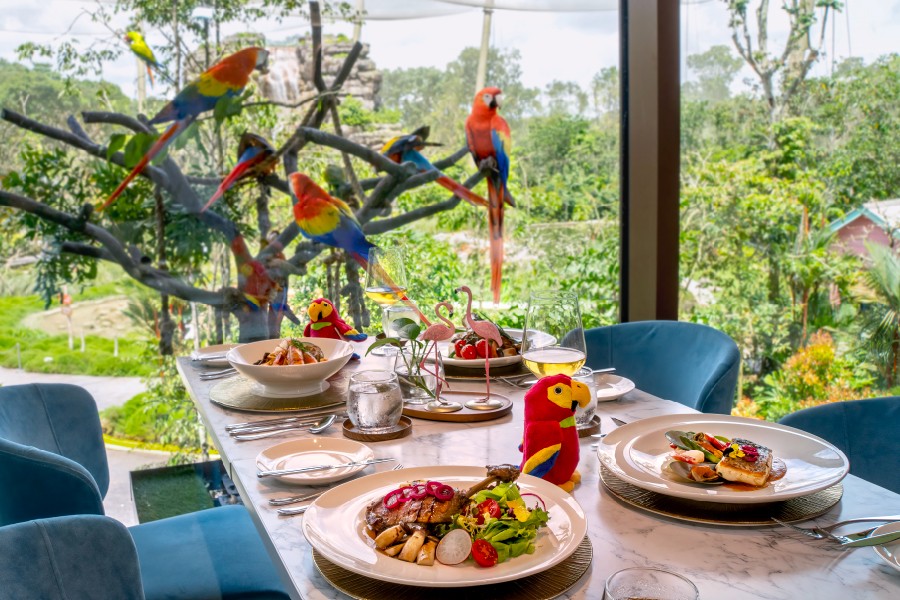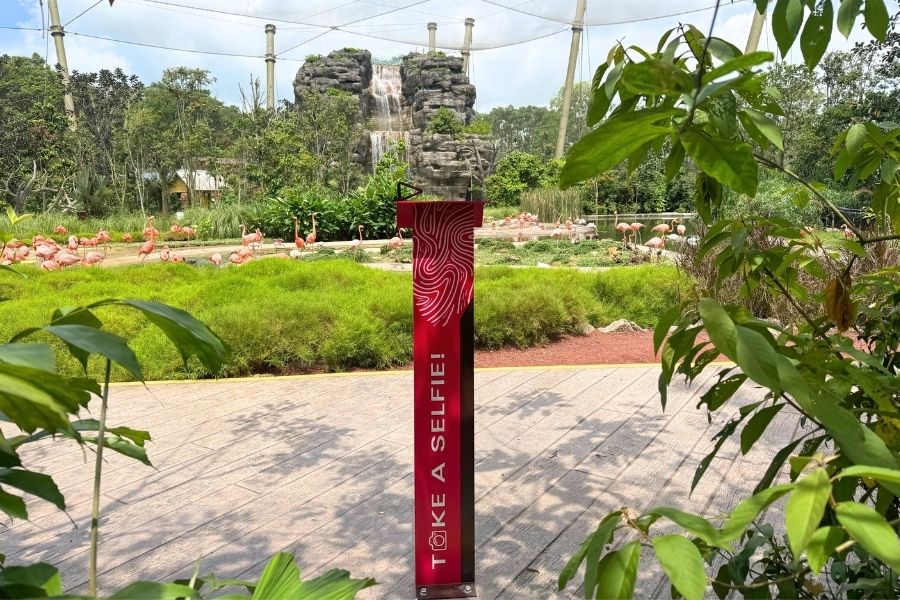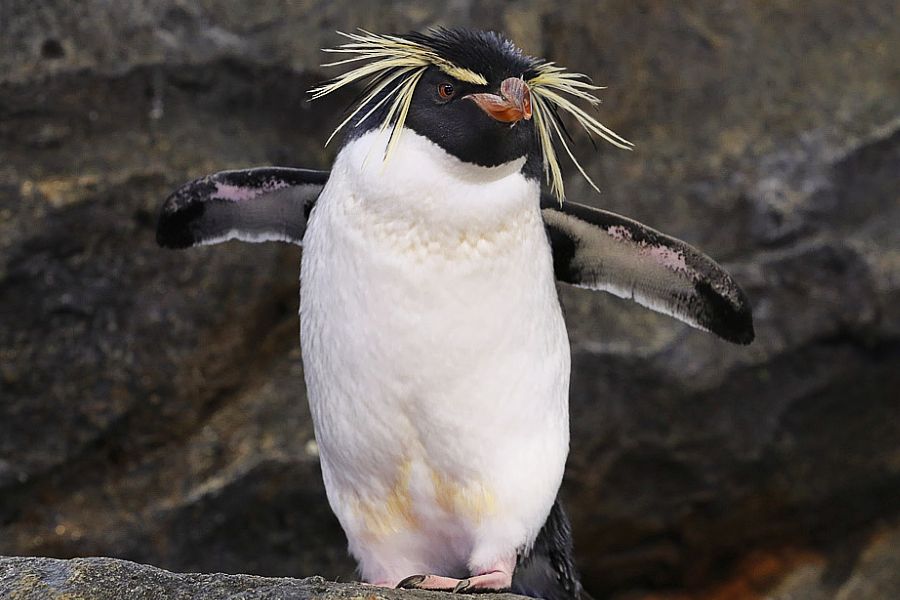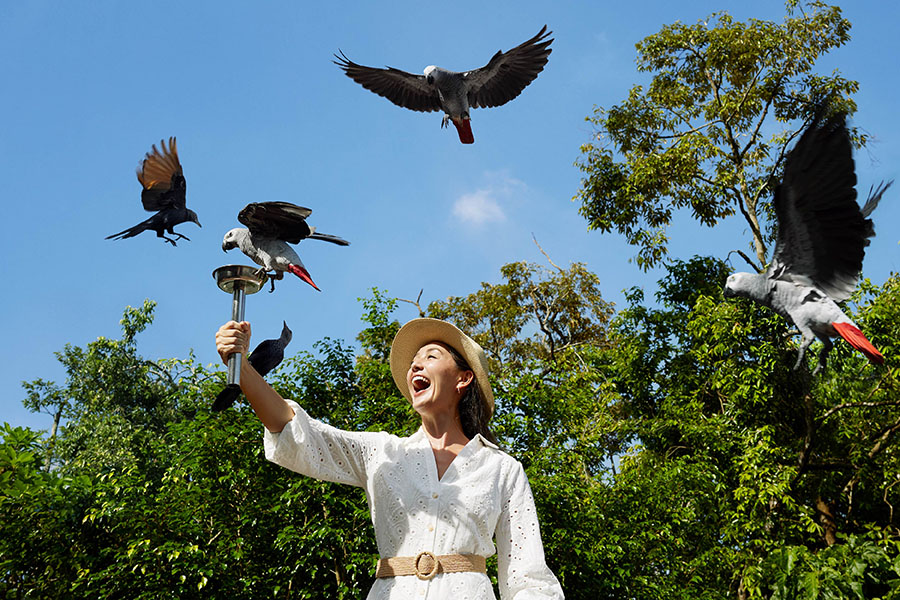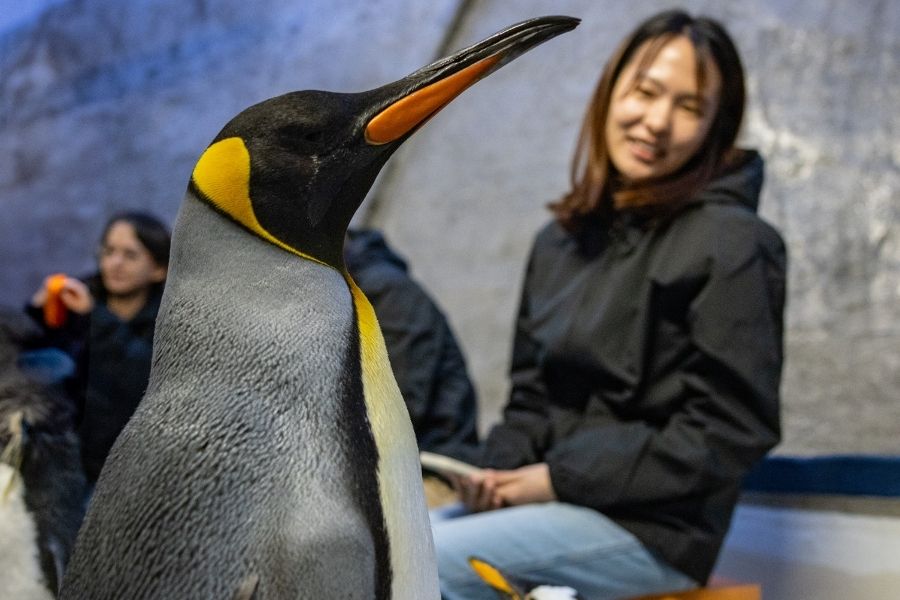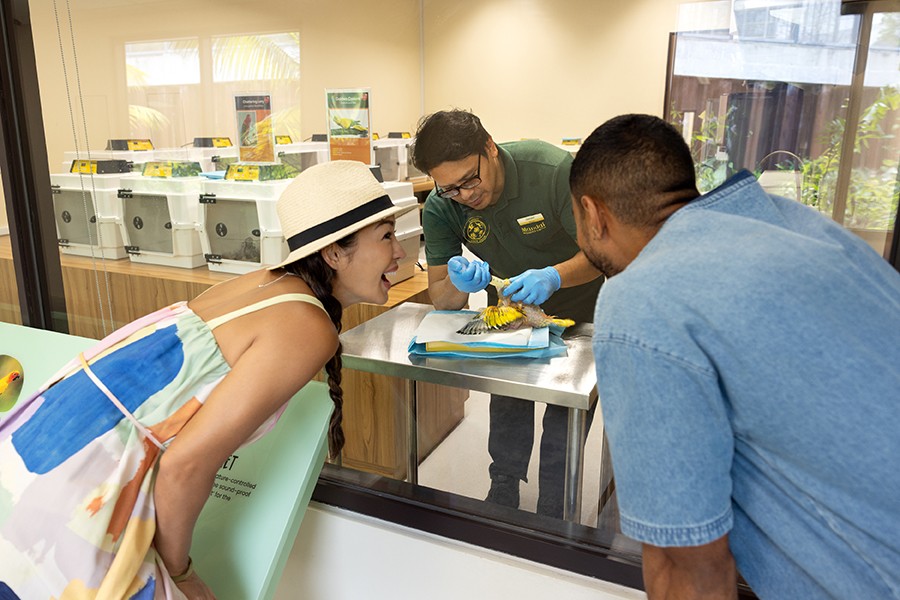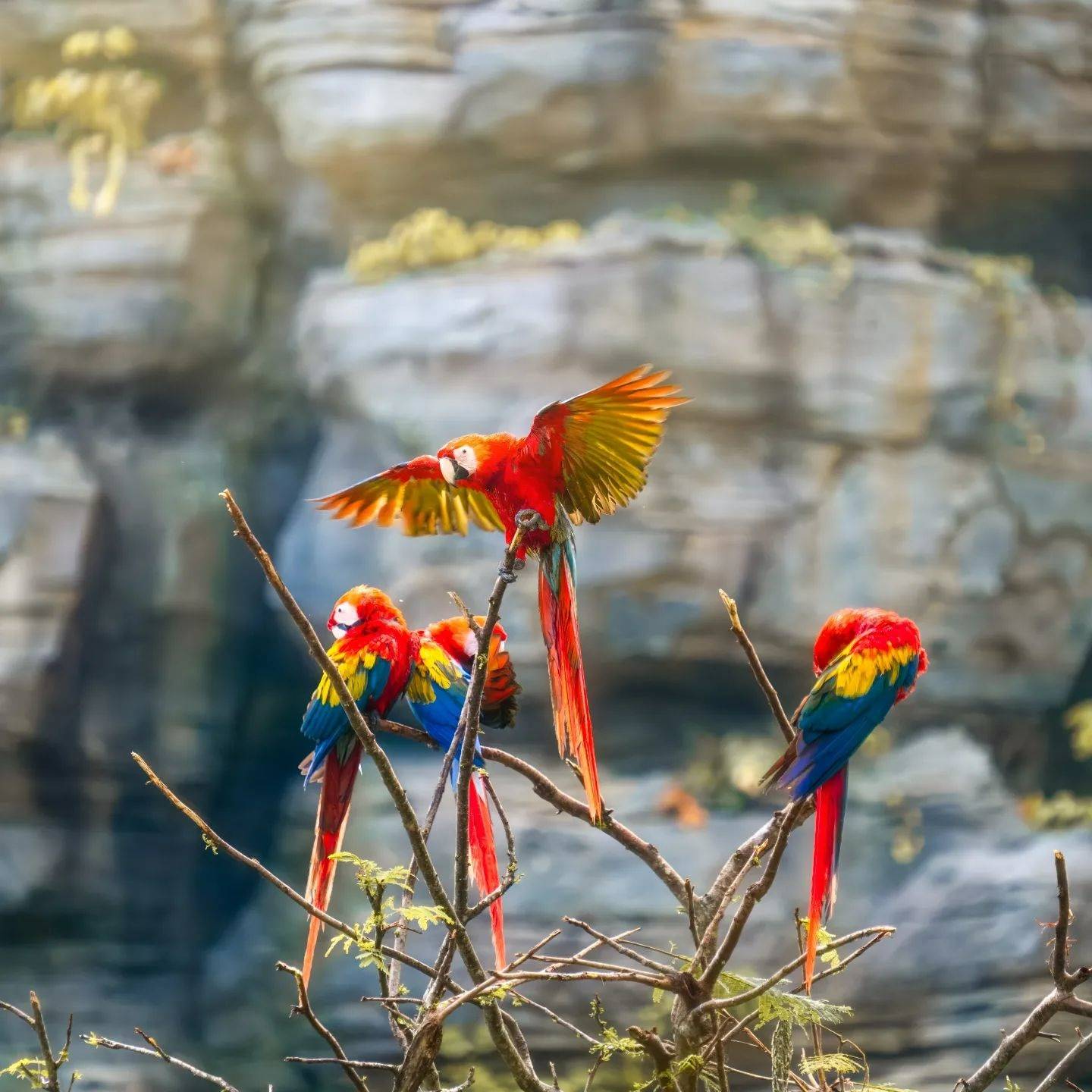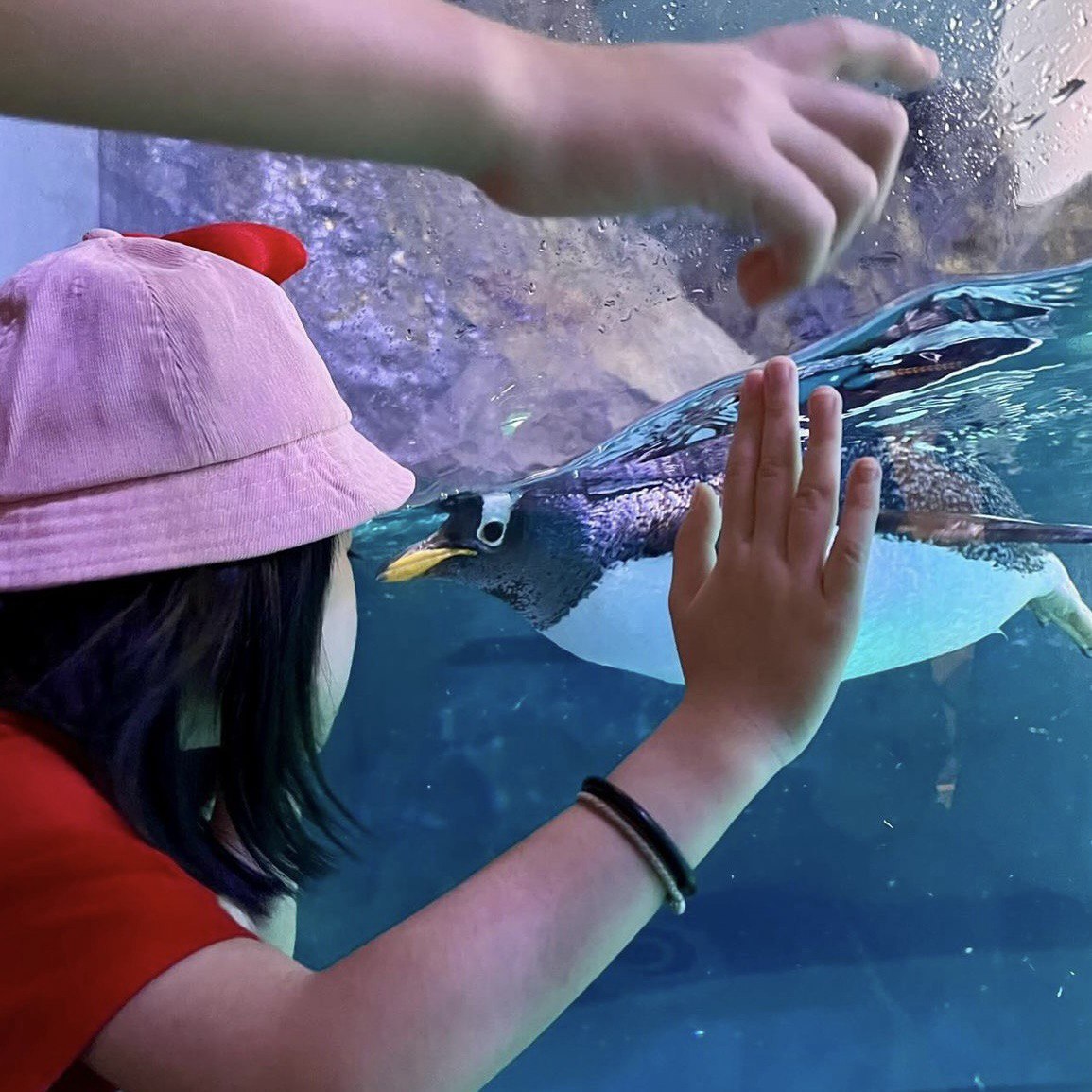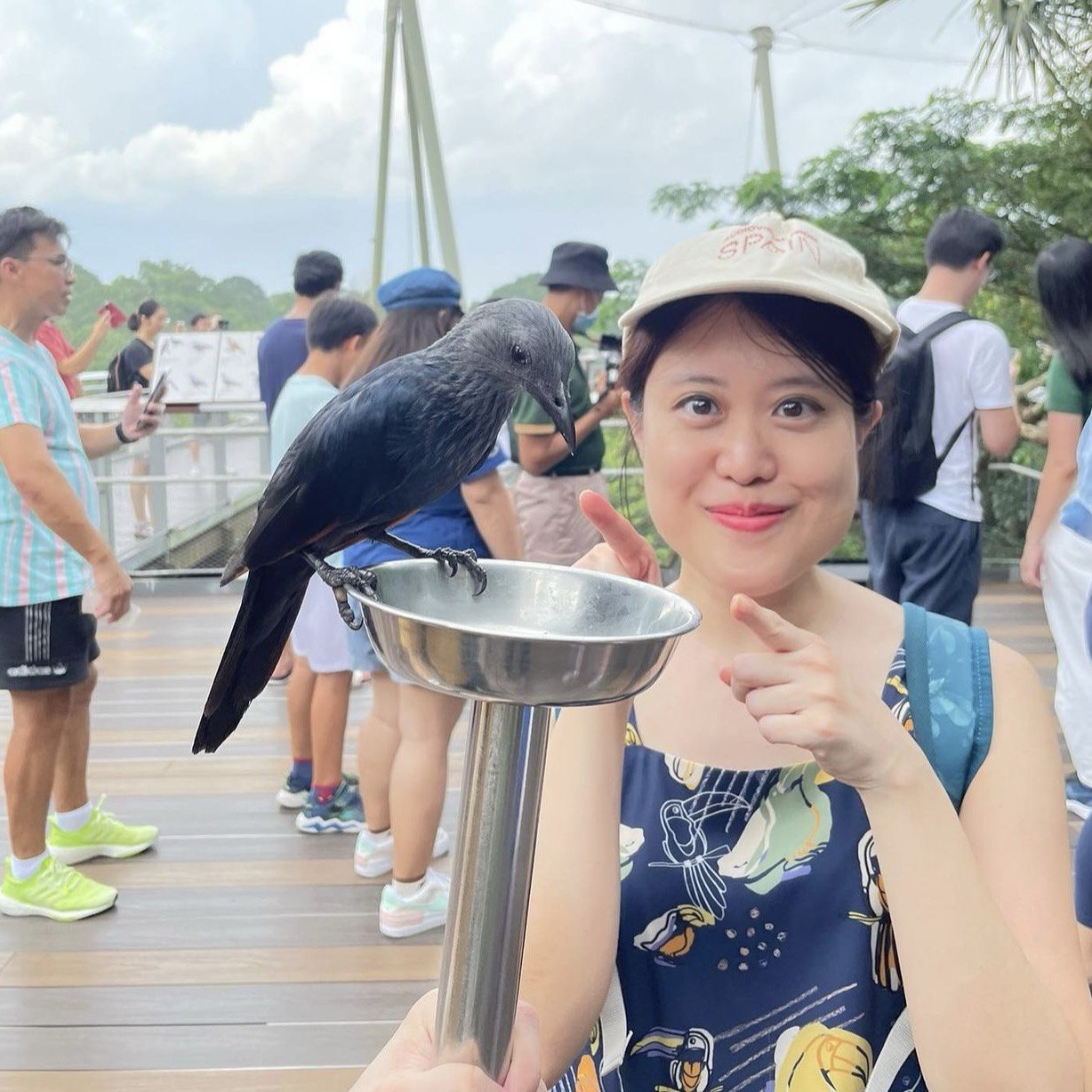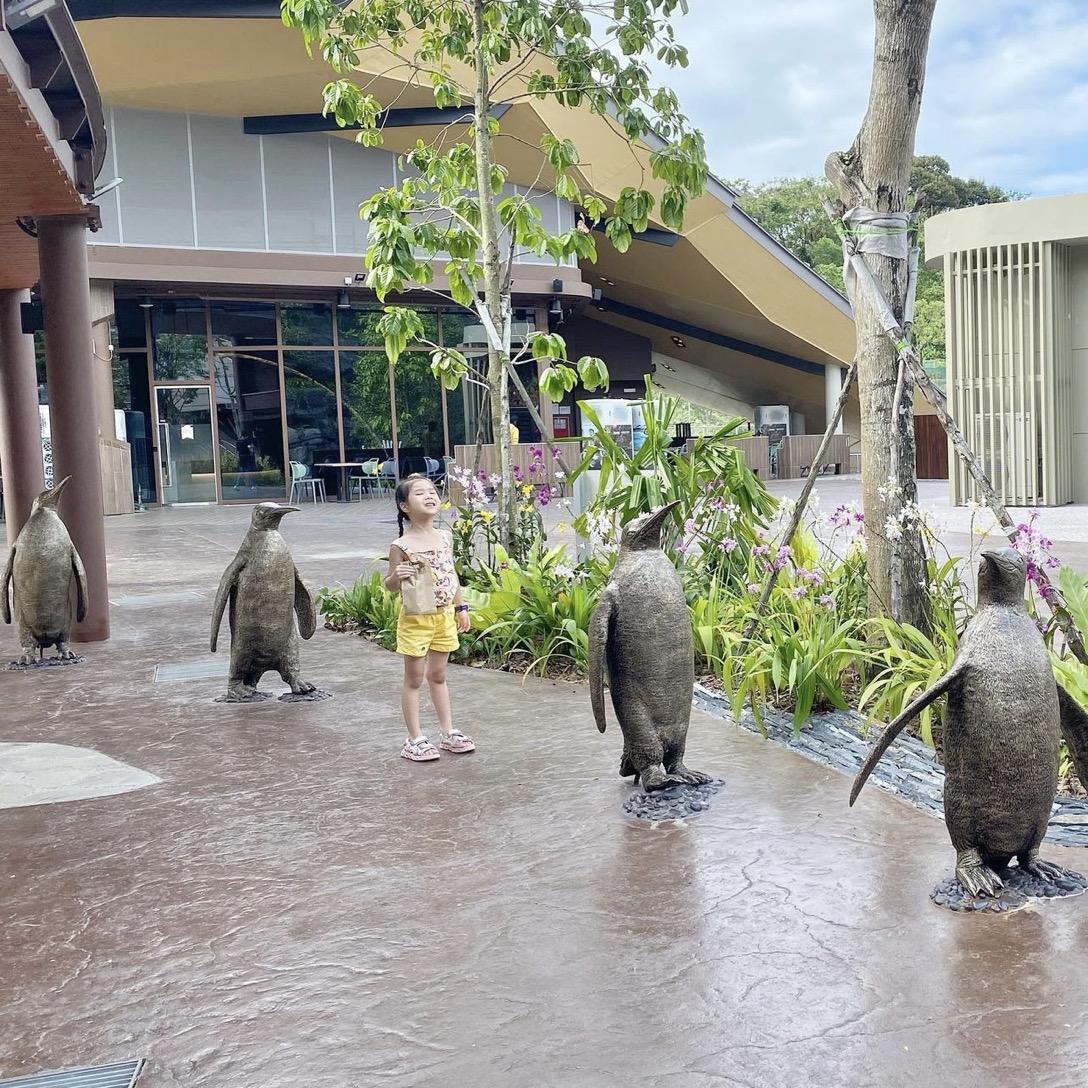Enjoy Singapore's first-ever Lunch in the Wild!
Bird Paradise
Immerse in a symphony of colours at Bird Paradise — Asia’s largest bird park.
Spanning 17 hectares, Bird Paradise is home to more than 3,500 birds from over 400 avian species with 8 large thematic walk-through aviaries. Each aviary reflects unique features, vegetation and bird species from different biomes around the world. Flock down to Bird Paradise today!
Immerse yourself in a symphony of colours and discover more than 3,500 birds from over 400 avian species.
Dine & Shop
Visitor Guide
Bird Paradise Attraction Map
Find your way effortlessly around with our maps, downloadable in multiple languages.
Plan your visit with the help of our sensory-friendly map and access guide map.

Maximise Your Visit with Mandai App
Plan your visit with our Transport feature and use the wayfinding map to explore your way around Bird Paradise.
Don’t miss out on our suggested itineraries and set reminder for your favourite animal presentation!
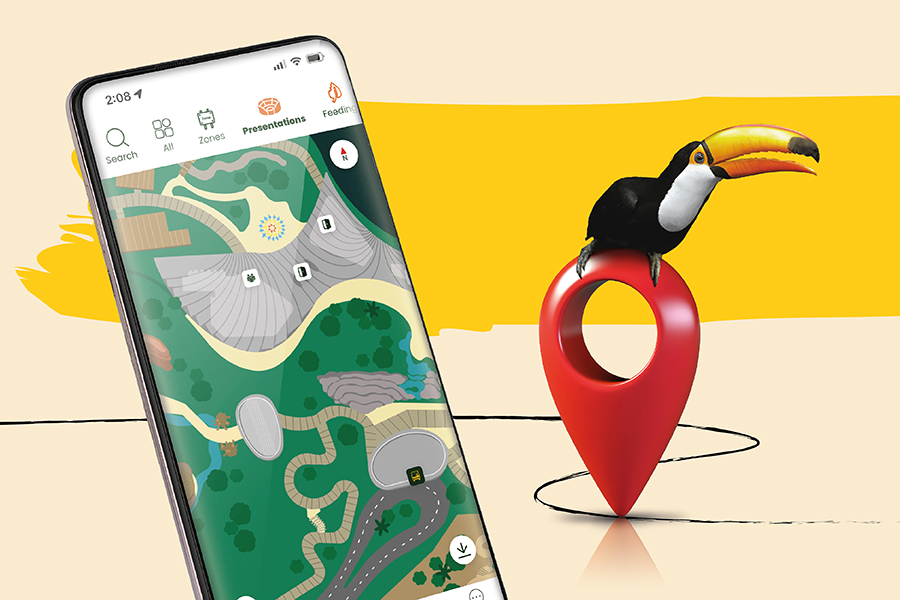
Elevate Your Attraction Experience
Don’t miss the Wild Side of Bird Paradise!
Explore our handpicked itinerary packed with crowd favourites, animal encounters, and inspiring stories.

Getting To & Around Bird Paradise





